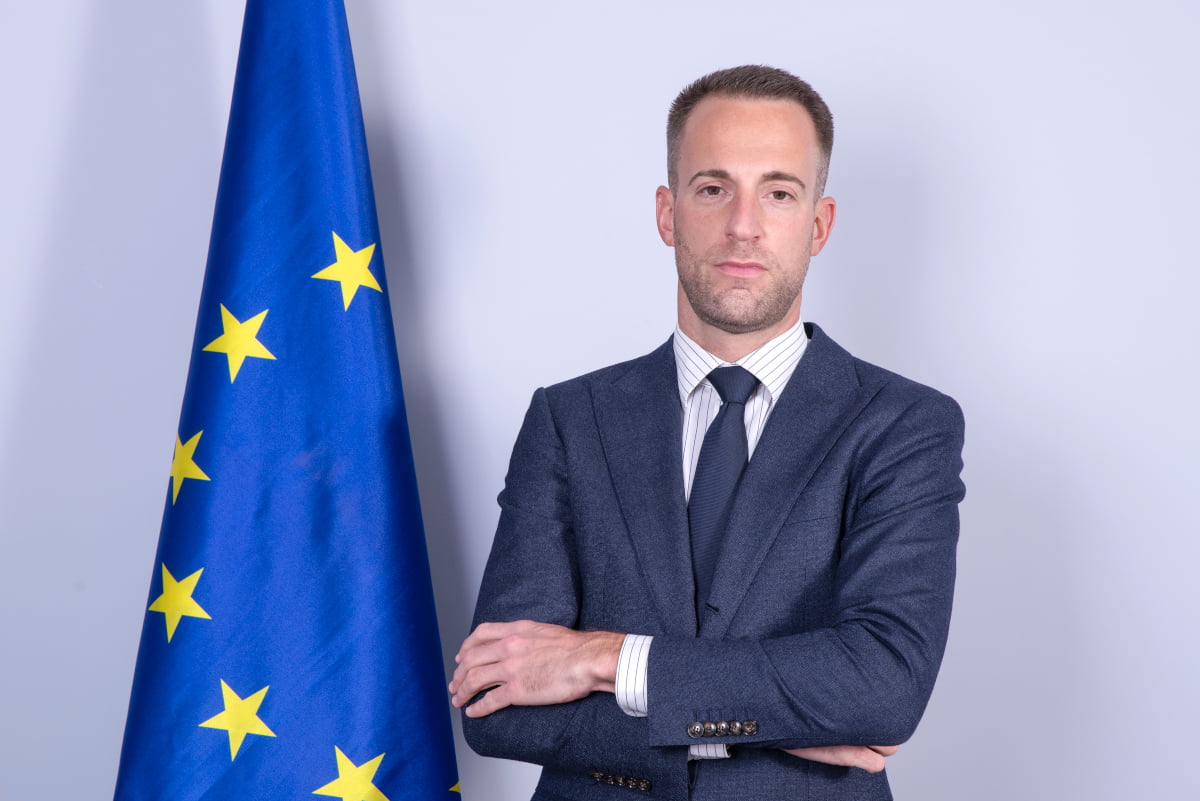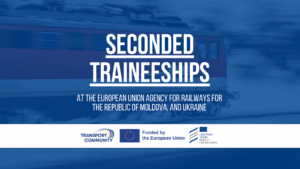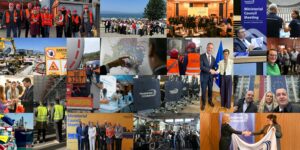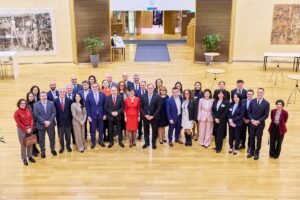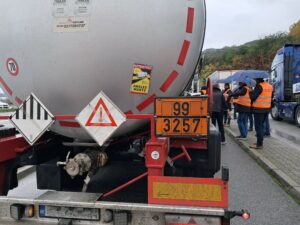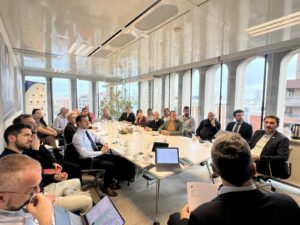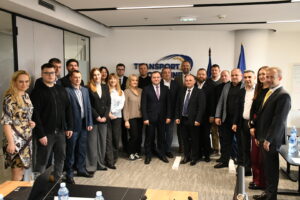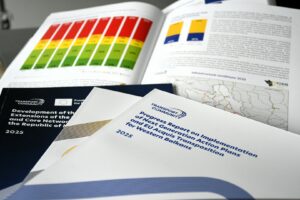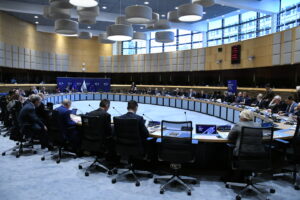INTRODUCTION
Good morning,
dear Chair of the Committee on Transport and Tourism, Ms Karima Delli,
distinguished members of the Committee,
it feels great to be back, even if it is in the virtual chamber of European Parliament.
I welcome the opportunity to address you, since I strongly believe that our relationship is of outmost importance and that you can contribute greatly to the successful work of the Transport Community.
Before I start, I know it is almost the end of January, however I think this year specifically, we are still allowed to wish each other a healthier, more connected, and kinder year 2021. It is a year of healing, of build back better in more sustainable and durable way. I am convinced, that as ever, transport will play a crucial role in it.
TRANSPORT COMMUNITY
Dear Members of the European Parliament,
I strongly believe that citizens in the Western Balkans expect that their governments will provide them with sustainable connectivity in its wides sense of the word. For that with the EU support we need to build, rehabilitate, and connect transport infrastructure, based on forward-looking European Transport policy.
With the main aim and focus on integration of transport markets of six Western Balkan regional partners into the European Union, the Transport Community will play a crucial role in achieving this.
Our membership consists of 33 participants: the entire EU represented by European Commission and six regional partners in the Western Balkans: namely Albania, Bosnia and Herzegovina, Kosovo, Montenegro, North Macedonia and Serbia.
We are focusing on investments that improve transport systems and their infrastructure, which in turn strengthens the countries’ competitiveness. This also contributes to building bridges in the region, developing good neighbourly relations and promote peace and reconciliation.
PRIORITES
Allow me to briefly outline our priorities:
- In the European Year of Rail, it is important to stress that in the Western Balkans we need to make travel with rail possible and attractive again for the citizens and business. We should also invest in rail systems and support multimodal solutions in the region. We need to move as much cargo from roads to rail as well as to better use inland waterway on Sava and Danube and maritime transport, specifically in Albania and Montenegro. This will help business, as well as make air cleaner in very polluted capitals in the region as well as roads safer.
To achieve this task, we at Transport Community and Western Balkans with the support of the EU, have drafted the Rail Action Plan that provides the basis for deeper integration with the EU rail market. The action plan is composed of soft measures also known as reform measures and the hard measures/construction works.
- Talking about road accidents with fatalities and serious injuries, Western Balkans partners share same views and aims as any other EU country – No deaths and serious injuries on Western Balkans roads by 2050. To achieve this, The Transport Community has a mission to support Western Balkan partners to make roads safer for everybody. This is not a political priority, but our moral imperative.
To make our aims achievable we have adopted the Road safety Action Plan that promotes safety management, safer infrastructure, and protection of road users. Its actions strive to support the “Vision Zero” objective, and to encourage regional best practices. Furthermore, with the EU’s technical assistance we identified 22 blackspots – sections with high accident rates – on road core network, and our aim is to eliminate these high risks sections.
- Transportation of goods and mobility of people across the region and with the EU should be seamless and safe. Borders should not be a source of frustration and delays. Citizens of our regional partners, visitors, and business wait too long at the border crossings, especially at the ones with the EU countries.
In the Western Balkans, during the first wave of COVID-19 pandemic in March last year, we at Transport Community and our colleagues at CEFTA and RCC, reacted quickly and together with all our regional partners and European Commission established the concept of Green Lanes. It prioritized essential goods, such as medical equipment, to pass our borders unobstructed and as fast as possible. When restrictions at the borders came up all around the world, thanks to of Green Lanes during the pandemic there was no shortage of essential goods in the region. This is the prove that when the region works together, with single determination it works very well together. Green Lanes save lives.
We are now building on good practice of Green Lanes and expanding them to the borders between the EU and Western Balkans.
In general, inefficient border crossings have a huge cost for transport and for the economy. It is not acceptable that in some cases, cars must wait 3 to 5 hours and trucks almost the double. Time lost at the borders has a cost, and this cost is very high for the Region: at least 250 M€ per year. Resolving this problem – setting more efficient operational proceeding should therefore be a priority for everybody.
To achieve that, we developed a Transport Facilitation Action plan which has its goal in creation of joint “one-stop-go” at our internal and external border crossings. Coupled with better interaction of the different transport modes along the Network will enable smoother, more efficient, and less costly logistic chains.
- We need to development road network that will connect the region between themselves and with the EU through the integration of green and smart elements in road transport to stimulate innovation, well-targeted, and properly dimensioned investments in the road sector.
To achieve that we developed the Road Action Plan which aims towards development of climate resilient, intelligent, and resource-efficient TEN-T road network in Western Balkans by incorporating green and smart elements in road investments. Our final aim is to stimulate innovative, low emission and fit for digital age road transport operations.
Allow me to stress that all priorities are based on political declarations from Ljubljana to Poznan, and from Trieste to Berlin, and of course based on the Transport Community Treaty signed between Western Balkans partners and the EU.
Furthermore, the Commission’s Economic and Investment Plan for Western Balkans as well as recently presented Sustainable and Smart mobility strategy is giving us a clear political framework and needed political support for necessary actions on the ground.
And this brings me to my last point:
Participation of Member States and European Parliament in the work of Transport Community
Dear Members of the Committee on Transport and Tourism,
As I mentioned in the beginning Transport Community is an international organisation with membership of 33 participants. All members of the European Union and six regional participants from Western Balkans.
This unique setup also gives it a unique power – Transport Community is as much Albanian as it is Austrian, and as much Montenegrin as it is Maltese. Transport Community will be successful if this will also be reflected in daily work of the Transport Community.
I therefore welcome and applaud participation of some member states, and interest of MEPs for example Mr Andor Deli, in the work of Transport Community.
However:
I must use this unique opportunity to appeal to you for even stronger participation. We need your knowledge, expertise, and guidance.
For obvious reason, my appeal goes in particularly to Members of European Parliament form neighbouring countries of Western Balkans (Croatia, Hungary, Bulgaria, Romania, and Greece).
Let us work hand in hand to integrate Western Balkans transport markets in the EU and connect Europe.
Because connectivity is a driver for jobs and growth.
Because it creates new links and opportunities.
Because it promotes good neighbourly relations.
And that is the one of the most fundamental building blocks of lasting peace and prosperity.
Thank you for your attention.

